
Photo: Fundación Albatros
The work carried out in 2023 has been made possible by the support of donors and partners.
We are grateful for their trust and continued generosity.
Photo: Fundación Albatros
On July 13, MAR Fund together with the Regional Office for Central America of the German Development Bank (KfW) and the Central American Commission for Environment and Development (CCAD) virtually launched the project “Protection of maritime resources in Central America III (Phase III).” On the same date, the first call for proposals was opened for the 14 eligible coastal marine protected areas listed in the 2nd regional prioritization exercise of protected areas in the MAR, developed regionally in 2016.
Objective: To consolidate a participatory national and regional habitat and biodiversity conservation strategy that ensures the sustainability of fisheries, the resilience of coral reef ecosystems, and the governance of Cayman Crown.
Progress to date:
- Lobster’s biometric data were collected from Puerto Barrios landings. Out of a total of 35 specimens, 54% were identified as females, and 46% as males, and all individuals complied with the regional regulation of The Organization of the Fisheries and Aquaculture Sector of the Central American Isthmus (OSPESCA) as they were above the established size limit.
- A capacity building protocol was developed for the fishing communities associated with the Cayman Crown no-take zone.
- Sixteen fishermen from El Quetzalito successfully completed the outboard motor mechanics course given by the Technical Institute of Training and Productivity (INTECAP, for its acronym in Spanish).
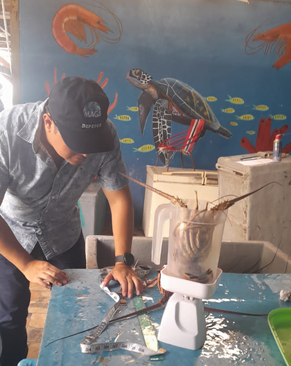
Photo: FUNDAECO
Objective: Conserve and restore 254 ha of tropical forest and mangrove ecosystem in communities of the Sarstún River watershed, promoting sustainable strategies with the environment, contributing to the resilience of the ecosystems of the Mesoamerican Reef System, through community governance mechanisms.
Progress to date:
- Thirty families received chickens, which contributed significantly to increasing their food security.
- Twenty-six women participated in a workshop on making homemade concentrate for chickens.
- Four workshops on the importance of tropical forest, mangrove, and coral reef conservation were conducted, with the participation of 30 young leaders.
- Twelve forest rangers were selected through community meetings and trained in the use of technological tools for forest monitoring (Global Forest Watch).
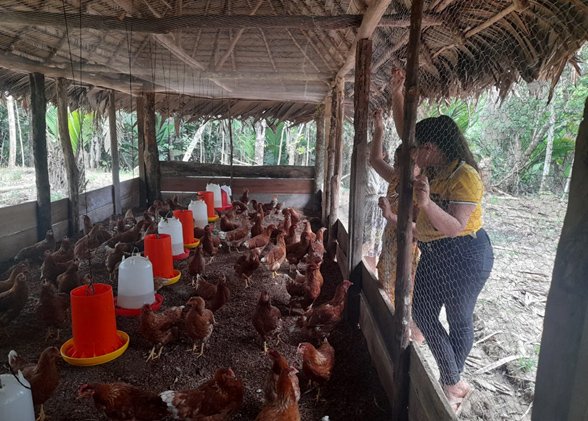
Photo: EcoLogic
Objective: To strengthen the financial sustainability of SACD through investments in its Business Arm and the establishment of a River-to-Reef (R2R) academic expedition package, creating direct employment opportunities in the tourism sector for low-income stakeholders and reducing overall community reliance on fishing.
Progress to date:
- T-shirts were purchased for SACD’s business staff to enhance their professional appearance while providing tour services and attending networking events.
- An air conditioner was purchased and installed in the Business Manager’s office.
- The Tesla solar system and the hydrostatic septic system were installed and are now operational at SACD’s Tourism Expedition Hosting Facility (TEHF) in Waree Bight.
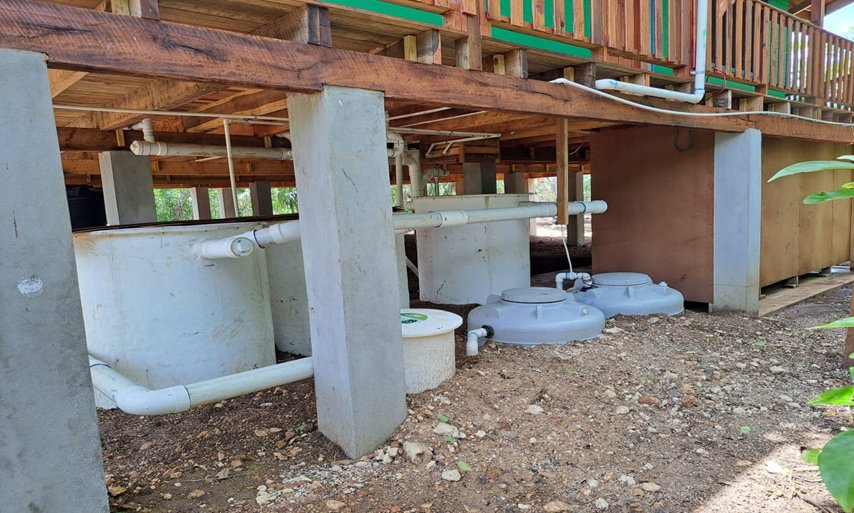
Photo: SACD
Objective: By the end of 2025, appropriate governance practices for natural resources, local ventures, and resilience strategies to climate change ensure the protection of 255.85 ha of tropical forest in the RSMUA and an improvement in the living conditions of the community members.
Progress to date:
- In June, the project was socialized in the communities of Barra Sartsún and La Guaira Cocolí, with 36 participants (24 men and 12 women).
- Two workshops on the use of technological tools for forest field monitoring were held, in which 22 community members (20 men and 2 women) learned to use GPS devices and the Global Forest Watch tool.
- A participatory process involving women from four communities resulted in the selection of entrepreneurial ventures to pursue, including laying hens, pig farming and the possibility of establishing a butcher shop.
- Two boats were equipped with awnings, life jackets, and buoys.
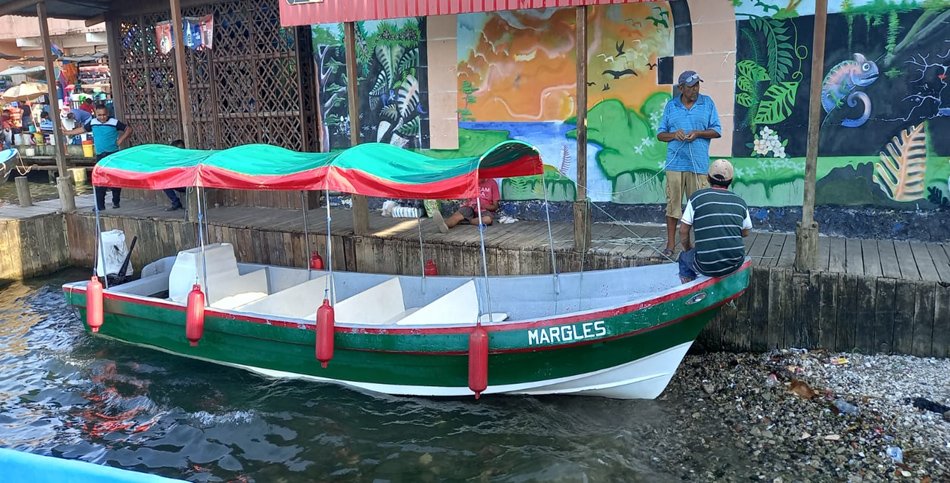
Photo: EcoLogic
Objective: To support the management, conservation, protection, and restoration of natural ecosystems of the MAR and the social development of local communities by strengthening the business model of eight innovative enterprises, improve their impact acumen, and prepare them to access new, better markets and financing opportunities in 12+ months.
Progress to date:
- The Request for Proposals “Bosques&Co” for nature-based solutions businesses was launched on August 7th by Alterna.
- Eleven businesses from the MAR region applied to be part of Alterna’s Cultivation Process, aimed at improving their business plans and overall impact. The selection process is ongoing.
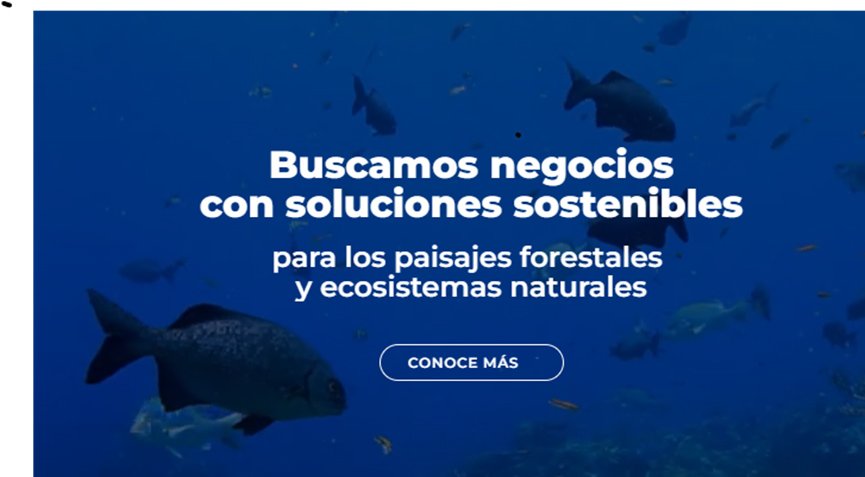
Photo: Fundación Albatros
Honduras – Belize
Objective: Identify sites where spawning aggregations of deep-water fishes occurs, along with the timing of these events using standardized methods. Age validation will determine the age-structure of the spawning populations, and genetic analysis will determine how gene flow and larval transport affect distribution.
Progress to date:
- A total of 185 silk snappers’ samples were collected from Honduras and Belize and sent for genetic connectivity analysis.
- In March 2023, a meeting with key stakeholders was convened in West End, Roatan, with 12 participants (8 women and 4 men) to present project results.
- The article The Impact of Small-Scale Fishing on Abundance and Size Distributions of Deepwater Snappers and Groupers in the MesoAmerican Region was accepted and published in the journal Reviews in Fish Biology and Fisheries.
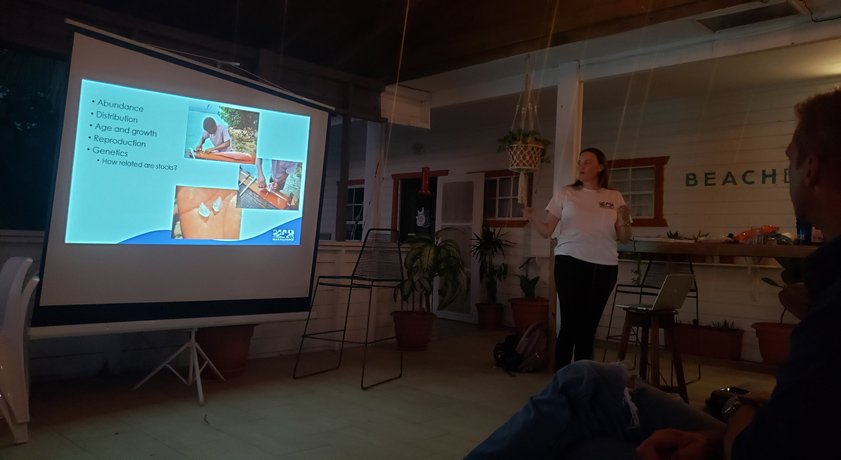
Photo: MarAlliance
Belize
Objective: To successfully implement a sustainable fishery framework in CBWS that prioritizes traditional user access rights and a participatory management approach, supported by the continuation of critical SACD programs that maintain and improve upon past organizational achievements throughout 2022 and into 2023.
Progress to date:
- CBWS’ staff salaries were covered.
- A total of 214 patrols were conducted, 29 infractions documented, which include nine gill nets confiscated, four written warnings given and 16 coastal development activities reported to the National Biodiversity Office (11 for construction and two for dredging without permits).
- Three rangers received the fisheries officer training by the Belize Fisheries Department and the research assistant and two rangers were trained in radio-tagged manatee tracking by ECOSUR.
- SACD developed monitoring activities: 18 bird surveys, nine manatee drone surveys, 25 fish count assessment and water quality monitoring.
- The vetting committee (VC) traditional beach trap fishers met for the first time in February 2023, to discuss permits, catch data, purpose of the VC, among others.
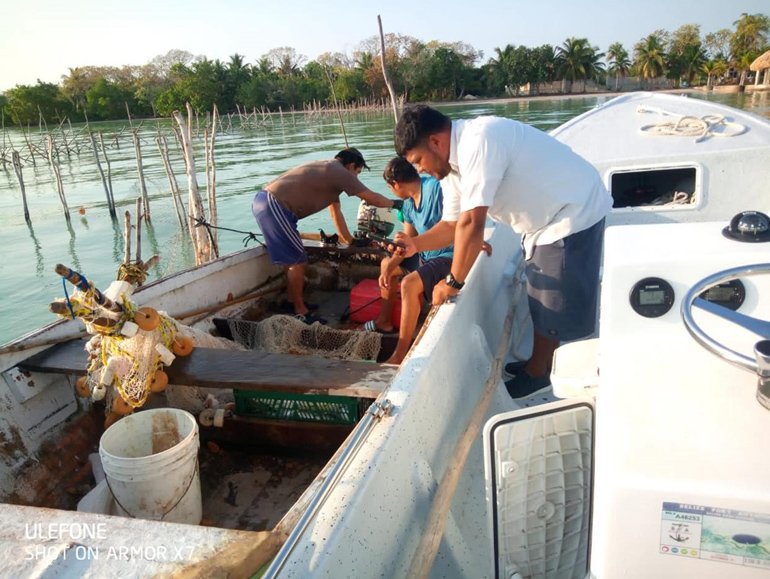
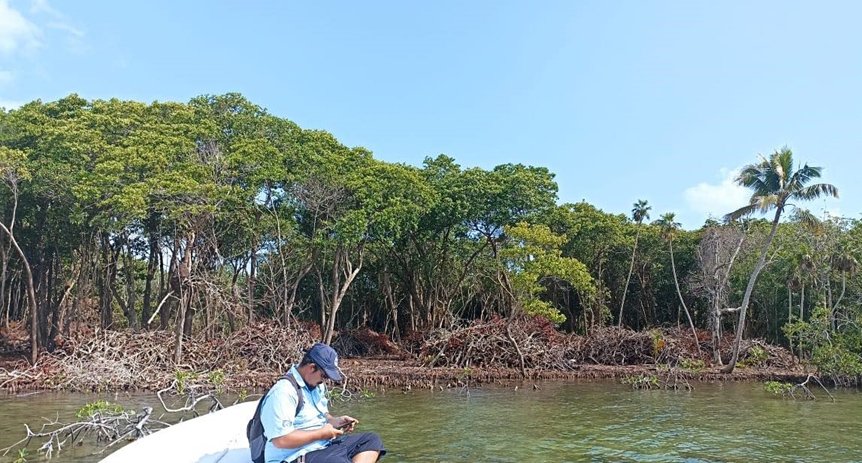
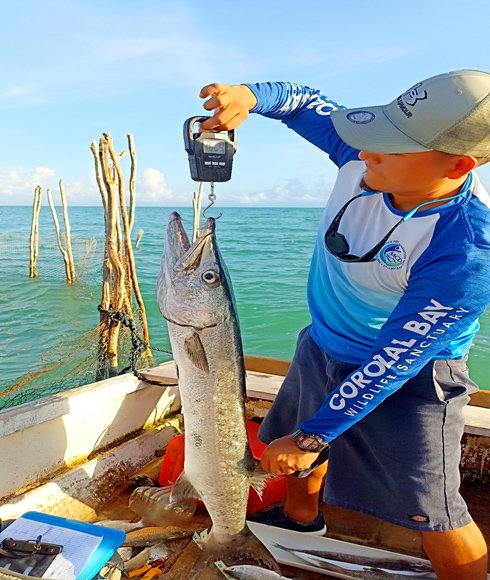
Objective: Characterization of FSA of Cayman Crown and provide initial management for Cayman Crown MPAs in Belize.
Progress to date:
- Six patrols were conducted between May and June at the Cayman Crown Reef portion in Belize by TIDE’s patrol team and the Belize Coast Guard without any adverse incidents reported for the area.
- In May, a meeting was held to discuss resulting recommendations from the forum held in April with Cayman Crown users where eight representatives from key organizations of the fishing and tourism industry in Belize participated. Results from the meeting include requests to analyze closing access of specific areas in Cayman Crown Reef due to their ecological importance and to analyze the possibility to grant special licenses to the community traditional fishers to access the area.
- In June, four community researchers (2 women, 2 men) were trained as PADI Rescue Divers and Emergency First Responders to advance their training to monitor the Cayman Crown Reef FSAs.
Objective: A regional data sharing workshop allows the MAR Fish partners to evaluate their contributions to the project and define the next steps for this initiative.
Progress to date:
- Eighteen representatives of 11 organizations that have partnered and implemented conservation actions at the MAR Fish project sites attended a workshop held in July in Cancun, Mexico. They shared and discussed advances, successes, and challenges, and planned next steps for the project including analyzing and uploading to the AGRAA database the 2023/2024 spawning season visual and acoustic data, FSA survey regional training, fundraising, continuing engagement with fishers and other FSA site users, and investigating sports fishing impacts in FSAs.
Objective: Provide management and zoning recommendations for the Cayman Crown and initial management funding for Cayman Crown with stakeholders in Guatemala.
Progress to date:
- Two workshops were held in May with 29 national and local scientific experts to discuss and approve conservation targets, threats, and pressures, and the strategies proposed by the round tables and the fishing communities as part of the Diagnosis of the Coastal Marine Zone of the Punta Manabique Wildlife Refuge. Results from these workshops include the analysis and integration of prioritized points in the diagnosis report, data sharing about sharks and FSAs to integrate it in in the final diagnosis report, and a final meeting to present the final report.
- Three environmental education workshops were implemented in August in Livingston and La Pista communities, where 188 (93 women and 95 men) students and fishermen participated.
- The megafauna monitoring protocol was implemented in August at the Foundara, Cabo Tres Puntas and Cayman Crown sites, during which a blue marlin (Makaira nigricans) and a bleaching event in the reef were observed.
- A surveillance patrol in the Amatique Bay and adjacent zones took place in June with support of CONACAR and DIPESCA to verify the application of shark close season and the proper use of fishing gear.
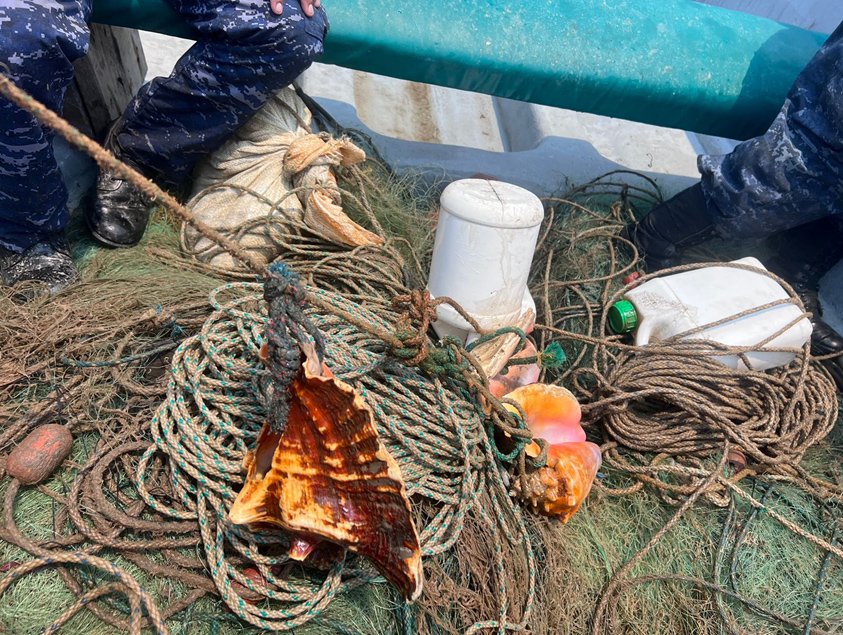
Photo: FUNDAECO
Objective: Generate a detailed map of the Cayman Crown area, conduct ecological characterization of coral reef and megafauna, and monitor reef health near or at sentinel sites to communicate results in report cards, Eco Audits, and social media.
Progress to date:
- In May, an AGRRA training took place in Belize where Benthic and Fish ID courses were offered to 19 participants of nine partner organizations.
- AGRRA Monitoring started in May in Mexico and Honduras and continued in Belize and Guatemala.
- Two informative videos about the scientific findings of the Cayman Crown reef were published in social media.
Photo: Fundación Albatros
Objective: Implement cost-effective insurance to cover hurricane risk to the MAR and enhance resilience of the local beneficiaries who depend on the reef for their livelihoods, food security, and protection from coastal hazards.
Progress to date:
- The MAR insurance programme renewed the 3rd year of placement, adding four additional sites. The programme now covers 11 pilot sites in the four countries. New sites for the term June, 2023- May, 2024 include, Tela Bay and Cayos Cochinos in Honduras, and South Water Key and Glover’s Reef in Belize. Funds for the premium were obtained thanks to the Insu Resilience Solution Fund (ISF), and the Adaptation Fund Climate Innovation Accelerator, through the United Nations Development Programme (UNDP/ISGAP). Find more information here.
Objective: Enhance institutional capacity to mitigate the impacts of hurricanes in coral reefs in the MAR.
Progress to date:
- In May, a workshop was conducted in La Ceiba, Honduras to train the Reef Response Coordinating Committee for the Caribbean of Honduras in the Early Warning and Rapid Response Protocol, and validate the Emergency Response Plan for the three reef sites covered by the insurance in Honduras. The workshop was conducted by MAR Fund. A total of 32 participants from 14 institutions received the training.
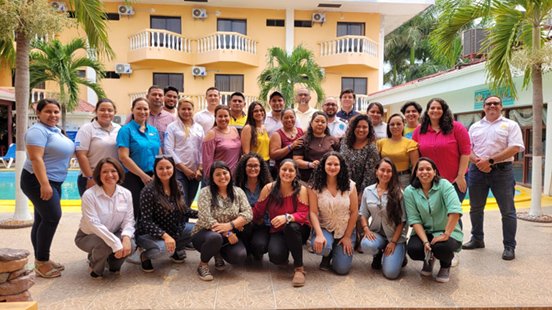
Photo: Zara Guifarro/MAR Fund
- In June, the emergency reef response brigade training was held in Roatan, Honduras. A total of 20 participants were trained as reef responders for the three reef sites in the Caribbean of Honduras.
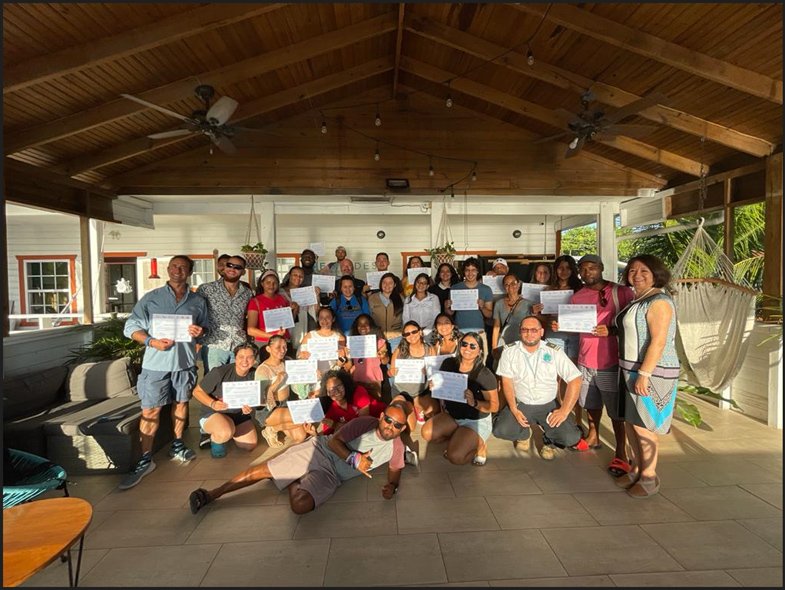
Photo: Juan Carlos Huitrón
Guatemala
Objective: Contribute to the management of mangroves through information that will improve decision-making for their proper management, guaranteeing the preservation of the resource and improving the living conditions of the people around this ecosystem.
Final results:
- From July 25 to 27, the II National Symposium 2023 “Mangroves for Life” was held in Guatemala. More than 200 Guatemalan and foreign scholarships holders from government, universities, private sector, local authorities, community leaders, NGOs and university students attended.
- Thirty-four conferences, four posters and four thematic axes divided into two days allowed the exchange of experiences and knowledge about the importance of mangrove ecosystems. MAR Fund participated with the conference: Tools for the conservation and restoration of mangroves in the Mesoamerican Reef.
- A field visit was carried out to Brisas del Mar community and to Manchon Guamuchal, which is the largest mangrove forest in the Pacific coast of Guatemala. Participants conducted reforestation and talked with the people of the communities.
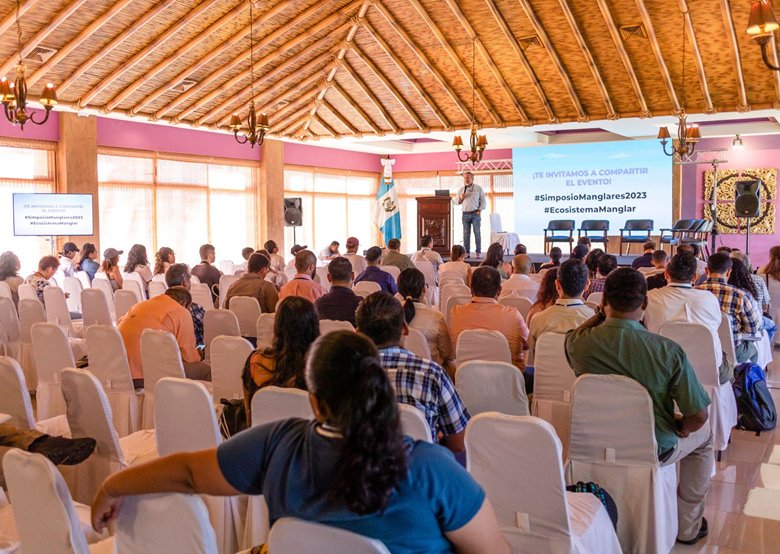
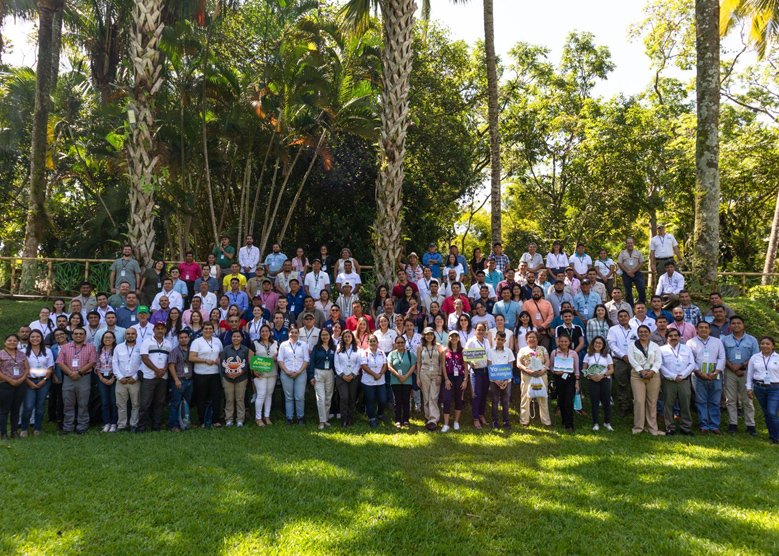
Photo: CONAP
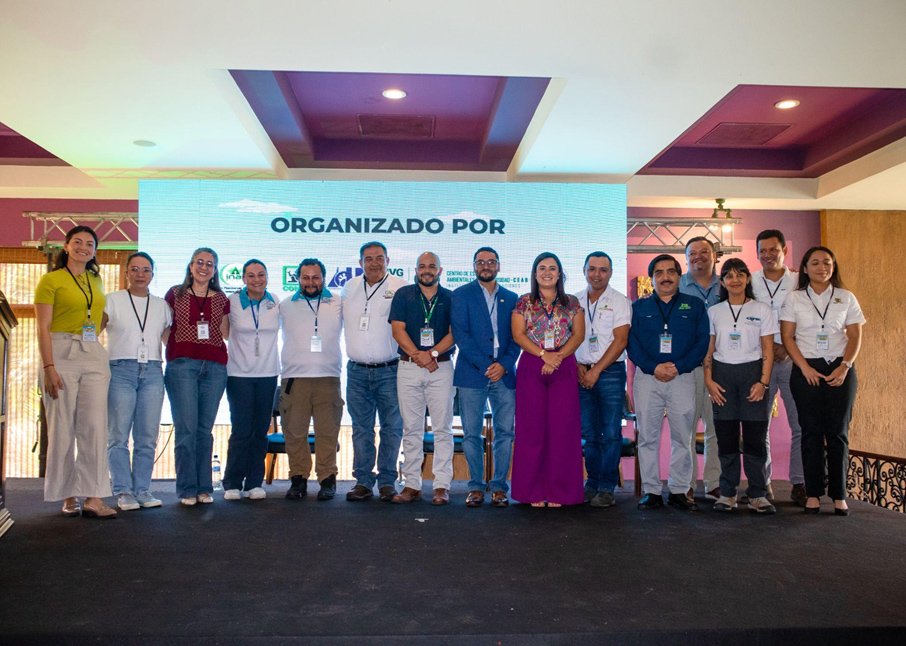
Photo: CONAP
Mexico
Objective: Restore the reef ecosystem and the ecosystem services it provides, through restoration techniques and monitoring, with the collaboration of the local community to ensure the sustainability of the project.
Final Results:
- Refragmentation of colonies from the Media Luna, Morgan, Isla Tortuga and la Boya nurseries resulted in 1150 fragments of Acropora cervicornis to be suspended in new lines or outplanted.
- A total of 1,200 fragments of Acropora species were planted in Media Luna, 400 of Acropora palmata from donor colonies in situ and 800 of A. cervicornis from the nurseries.
- Bleaching intensity was assessed in 1,150 colonies at five Akumal reef sites, yielding a total bleaching rate of 35%, peaking at 50% at one location.
- Thirteen leaders (five women and seven men) have been trained in coral restoration.
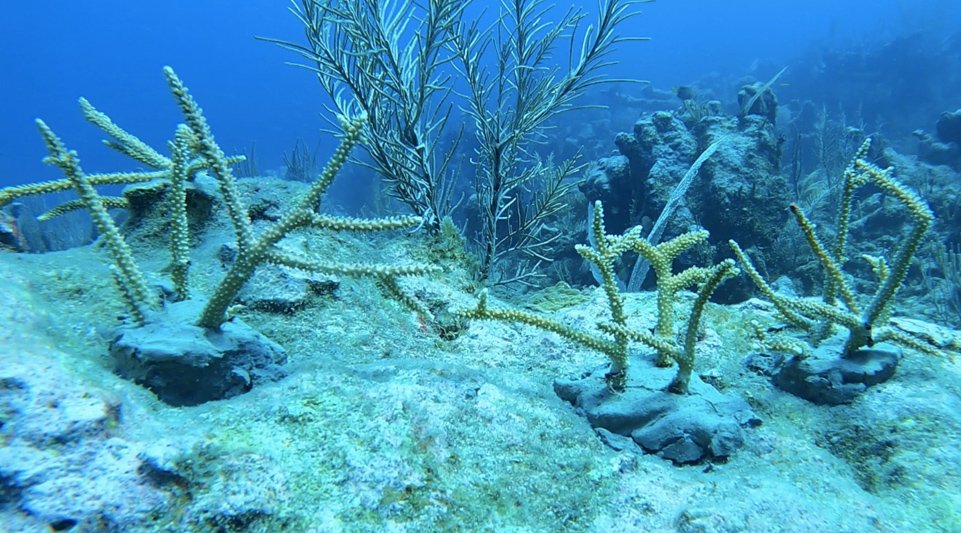
Photo: CEA
Photo: Fundación Albatros
The Belize Marine Fund (BMF) supports projects through two programmatic windows 1) the Targeted Grants Program and 2) the Small Grants Program. The projects supported by these programs have been guided by those priority areas of focus established in the BMF’s Strategic Plan and in consultation with the BMF Steering Committee.
Objective: To strengthen the financial sustainability of SACD through investments in its Business Arm (SACD Green Ltd.) and in Sarteneja, supporting alternative livelihoods for Corozal Bay Wildlife Sanctuary (CBWS) Stakeholder communities (primarily Sarteneja) through increased visitation to the area, increasing employment opportunities in the tourism sector and reducing community reliance on fishing.
Progress to date:
- In July 2023, SACD hosted its first international expedition groups from World Challenge Expeditions, and Global Leadership Adventures (a total of 57 individuals) at the Tourism Expedition Hosting Facility (TEHF) at Waree Bight–constructed through partial support of this grant–as a financial sustainability and income diversification opportunity for SACD.
- Activities conducted at the TEHF by expedition groups included the establishment of a red mangrove nursery, lessons in fish cleaning and preparation with local traditional fisher families, and a practical workshop on the creation of ‘Lionfish jewelry’ with local craftspeople from Sarteneja.
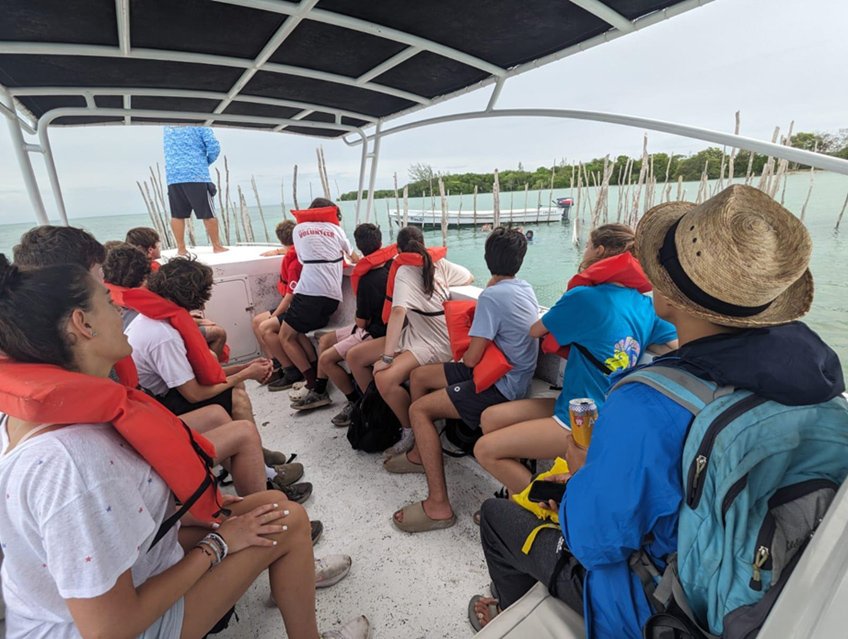
Photo: Ruby Arrivillaga (SACD Head Ranger)
Objective: To raise national and international awareness, through an original documentary film, of the efforts being undertaken by women leaders from various walks of life to preserve Belize’s Barrier Reef Reserve System and to inspire both local and international audiences to take action to support these efforts.
Progress to date:
- The backbone treatment for the film’s storyline was completed, and the screenplay was finalized.
- From May 3-21, 2023 the UBELIZEABLUE documentary team conducted their fourth and final trip to Belize to film remaining interviews and capture cinematic footage–wrapping up production.
Objective: To apply lessons learned for successful lionfish control with Wabafu Fisher Association in South Water Caye Marine Reserve, building on the approach developed and piloted with Turneffe Atoll Marine Reserve (TAMR).
Final Results:
- Blue Ventures recruited and trained 10 lionfish brigade members.
- Ten sets of snorkel equipment and four buoyancy control devices for brigade members were purchased.
- Brigade members were trained as PADI Advanced Open Water Divers, Emergency First Responders, and in Lionfish Focused Search methods.
- Twenty-two sites were surveyed in South Water Caye Marine Reserve, covering a variety of habitats to gather lionfish and prey fish data.
- Lionfish were present at six sites. A comparison of the management zones within SWCMR showed a density of 10 lionfish per hectare in the general use zone (GUZ), while the no-take zone (NTZ) had a much higher density of 100 lionfish per hectare.
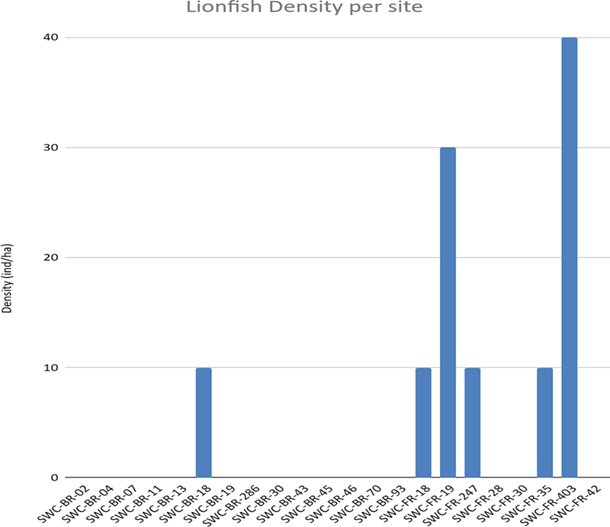
Graph by: Blue Ventures
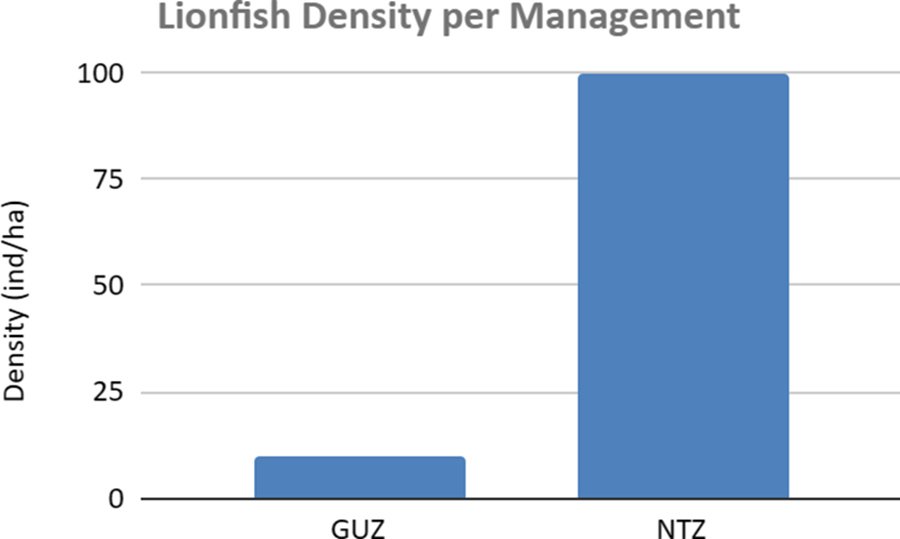
Graph by: Blue Ventures
Objective: To assist fishery managers and fishers in Belize to prioritize monitoring and conservation of SPAGs as a key component of climate-resilient fisheries management. Ensuring the health and productivity of Belize’s marine ecosystems and SPAGs, supporting thriving, climate-resilient finfish fisheries and fishing communities.
Progress to date:
- In August 2023, a representative of EDF attended the MAR Fish workshop hosted by COBI in collaboration with MAR Fund, in Mexico. The workshop provided EDF an opportunity to share SPAGs data collected from its efforts at Turneffe Atoll Marine Reserve in collaboration with TASA.
Objective: To strengthen BAS’ existing relationship with stakeholder communities of Lighthouse Reef Atoll through expansion of its environmental education & community outreach programs.
Final Results:
- BAS recruited and trained a cohort of 15 Reef Protectors (4 females and 11 males).
- A series of five videos called “Reef Protectors in Action” were created, shedding light on critical topics such as mangroves, plastic pollution, coral reefs, sea grass, and climate change.
- Ten meetings/workshops and four field trips (focused on topics including marine monitoring methodologies for sea turtles, lobster, and conch; and introduction to birdwatching etc.) were hosted to build knowledge and introduce marine conservation and other life skills to program participants.
- Seven participants were successfully trained as PADI Open Water Divers which provided three Reef Protectors the opportunity to intern with BAS.
Objective: To advance TIDE’s long-term goal for the Port Honduras Marine Reserve (PHMR) which is to promote “the sustainable management of coastal ecosystem functions and natural resource values for the benefit of present and future generations of Southern Belize, within the wider ridge to reef landscape.” Through this initiative TIDE seeks to advance the overall management effectiveness of the Port Honduras Marine Reserve (PHMR) through the use of technological solutions that improve enforcement.
Final Results:
- Two rangers were trained as PADI Open Water and Advanced Open Water divers, while a third ranger received Advanced Open Water and Emergency First Responder First Aid training.
- TIDE developed its Port Honduras Marine Reserve (PHMR) Hybrid Enforcement Strategy (2023 – 2027); updated its existing Aerial Drone Operation and Maintenance Manual, and developed a Remotely Operated Underwater Vehicle Operation and Maintenance Manual for the two underwater drones procured.
- The organization also designed and produced 14 signs depicting the rules and regulations of PHMR for installation in key locations including its West Snake Caye Conservation Zone, Abalone Caye, and its stakeholder communities.
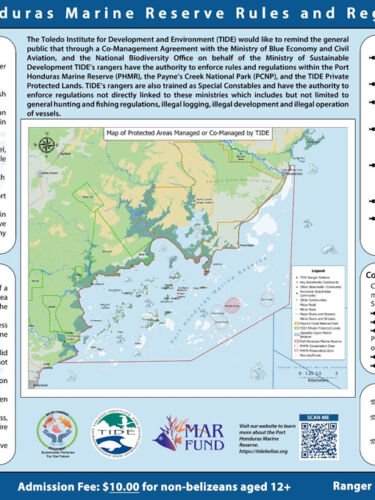
Photo: TIDE
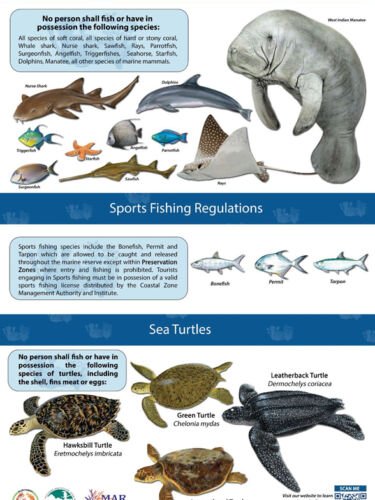
Photo: TIDE
Objective: To improve engagement of SWCMR stakeholders, increasing knowledge of and appreciation for the importance of mangrove ecosystems, a willingness to steward mangrove habitats, and an enhanced capacity for mangrove restoration and monitoring.
Progress to date:
- Reef Keeper Belize planted 200 red mangrove (Rhizopora mangle) propagules for use in restoration on Twin Cayes, and out-planted approximately 60 mangrove seedlings in front of Christ the King Anglican Primary School in Dangriga.
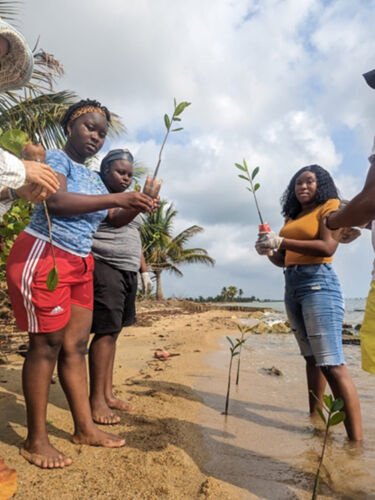
Photo: RKB
Objective: To strengthen the financial sustainability of SACD through investments in its tour operator (CBEA) while supporting alternative livelihoods for community groups (3 community groups representing a minimum of 19 households) in Sarteneja, community reliance on fishing.
Final Results:
- SACD completed construction of the Tourism Expedition Hosting Facility (TEHF) at Waree Bight in June 2023. This included the installation of the solar system; and the furnishing of the facility, particularly the installation of granite surfaces for the kitchen (providing aesthetic to the space, while maintaining hygiene standards).
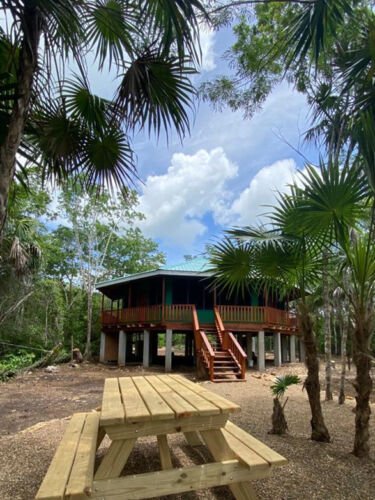
Photo: Ismael Teul / Conservation Investment Manager – PACT
Photo: Fundación Albatros
Mexico
Objective: Carry out an economic valuation of the hydrological services of the Holbox fracture and the Yalahau Lagoon in the Yum Balam Flora and Fauna Protected Area to make visible the economic and socio-environmental benefits that they generate for local-regional development and use it as a tool for integrated water management.
Final Results:
- The economic valuation of the services offered by Yalahau Lagoon and its associated ecosystems was completed. Through literature review and interviews with 25 fishermen, results revealed that the predominant economic activity is fishing, followed by tourism and agriculture. However, tourism generated the highest economic value annually (USD 337.8 million), followed by carbon sequestration (USD 35.467 million), with food supply being the lowest (USD 5.8 million).
- Ten ecotechnologies workshops were conducted with 221 participants (150 men and 71 women).
- Three rainwater harvesting systems were installed for two fishing cooperatives in Chiquilá and for a secondary school in Holbox.
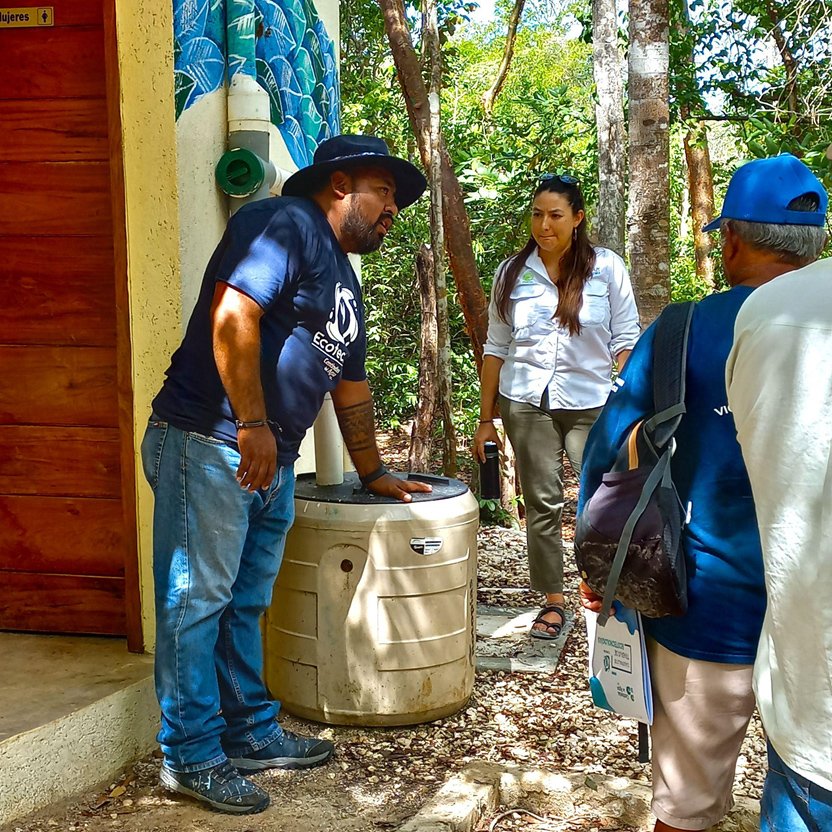
Photo: CDA
Honduras
Objective: By 2023, mechanisms will have been established to reduce pollutants to the marine environment through construction of infrastructures that generate efficient wastewater treatment processes, public awareness involved in decision-making in communities and change in the perception of new generations.
Progress to date:
- Three virtual training sessions were provided by POLO, Coral Reef Alliance, Rotary Club International and the Regulatory Body for Drinking Water and Sanitation Services (ERSAPS) to the Juticalpa Water Committee (seven members), to strengthen their board and processes.
- Two educational talks were given to 27 children at the Fundación Sol facilities in Sandy Bay, to promote an understanding of the importance of water, encourage responsible use, and educate about the hydrological cycle and pollutants.
- The construction of the anoxic concrete tank in the wastewater treatment plant area was completed.
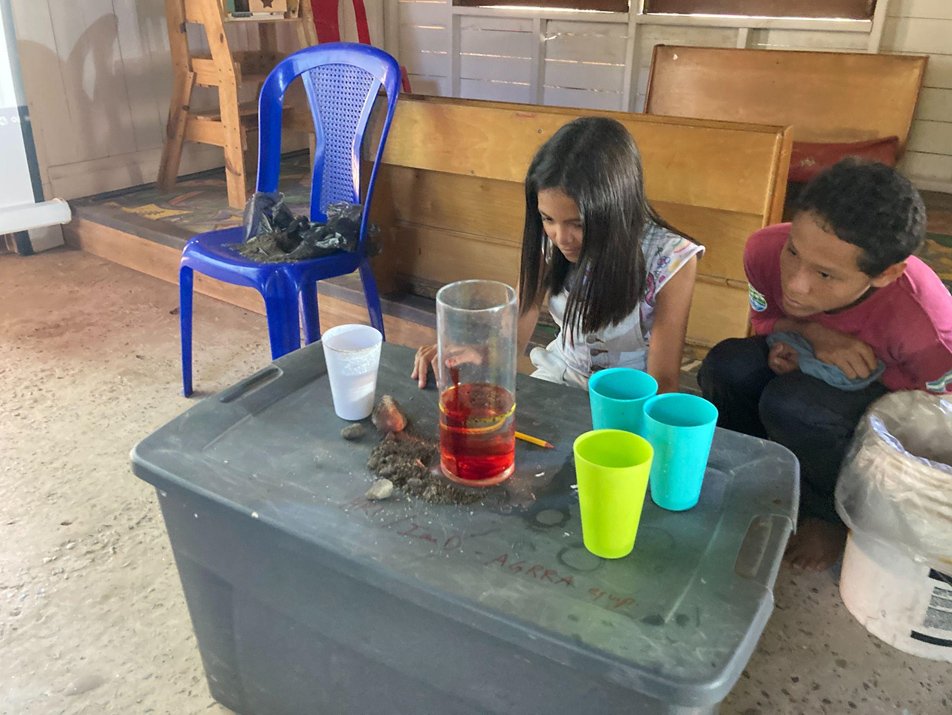
Photo: POLO
Honduras
Objective: To promote improvements in the management and conservation of the ACCMNM reef and the lower watershed of four of its influential rivers, with the involvement of stakeholders in the preparation of a plan that considers the results of water quality monitoring and its relationship with the state of the reef.
Progress to date:
- The project was socialized with the communities of La Ceiba, Belfate and Jutiapa and local stakeholders such as the Forest Conservation Institute (ICF), the Secretariat of Natural Resources and Environment (SERNA-MiAmbiente) and the General Directorate of Fisheries and Aquaculture (DIGEPESCA), with the participation of 28 people.
- An assessment field trip was made to seven reef sites and four estuarine sites to define a plan for water quality, Atlantic and Gulf Rapid Reef Assessment (AGRRA) and Stony Coral Tissue Loss Disease (SCTLD) monitoring.
- The first SCTLD monitoring showed that six out of seven sites of the reef monitored present the disease.
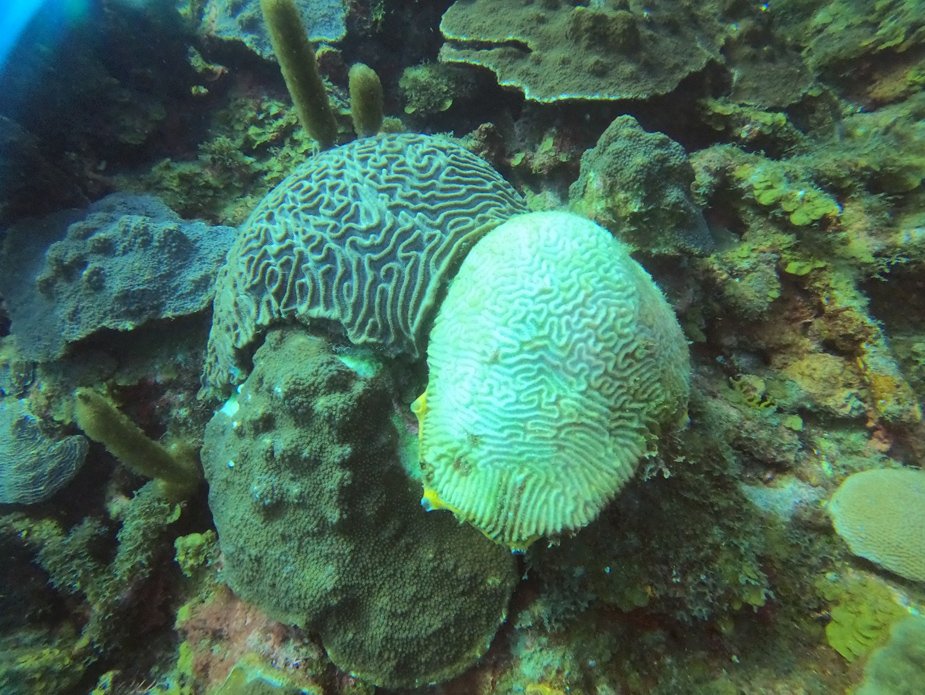
Photo: Fundación Hondureña para la Protección y Conservación de Cayos Cochinos
Honduras
Objective: To strengthen the management of drinking water and basic sanitation in the Crawfish Rock community.
Results to date:
- The project was introduced to the Crawfish Rock community in August with the participation of 18 people.
- The first sample of seawater from the Crawfish community was collected for water quality assessment.
- A presentation on effective water management was given to 30 students, comprising 19 girls and 11 boys, from the Isidro Sabio Cacho School.
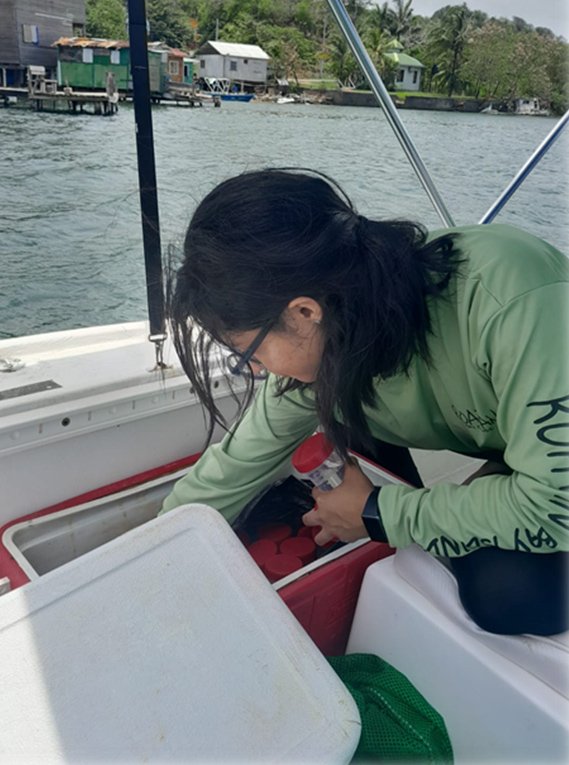
Photo: BICA
Photo: Fundación Albatros
MAR+Invest is a blended finance mechanism with strong monitoring and evaluation of impacts, business acceleration and a capacity building program that aims to enable conditions for a sustainable ocean-based economy in the MAR. It will invest in market-based initiatives that make a positive contribution to the health and resilience of the coral reef ecosystems and communities of the Mesoamerican Reef.
In May 2023, MAR+Invest selected eight enterprises to take part in the first cohort of the Acceleration Programme: Aquosmic, BioPlaster, Natoure, Sarteneja Alliance for Conservation and Development (SACD), Tela Marine, Thalasso, The Chilam Group, Tobacco Caye Marine Station.
- The MAR+Invest Acceleration Programme runs from June to November 2023, entrepreneurs will receive tailored training and access to financial solutions to boost their businesses.
- The first cohort of eight projects participated in the MAR+Invest Acceleration Programme Launch Cocktail held at the B Unique Hotel in Cozumel, Mexico on June 6, 2023.
During the event, Mr. Jon Benjamin, the British Ambassador to Mexico, delivered a video message to the participants in which he congratulated the entrepreneurs for their commitment to the health of the MAR. - Yabanex Batista, Deputy Director of GFCR’s UN Global Team (UNGT), attended the in-person launch. He introduced the work and mission of the GFCR around the world and highlighted the importance of supporting mixed financing initiatives for coral reef conservation. Yabanex also visited some of the key regional sites in the initiative’s portfolio, such as the King Crab facilities at Centro Regional de Investigación Acuícola y Pesquera (CRIAP), Carbonwave -a sargassum processing plant-, and the Puerto Morelos National Park reef restoration site.
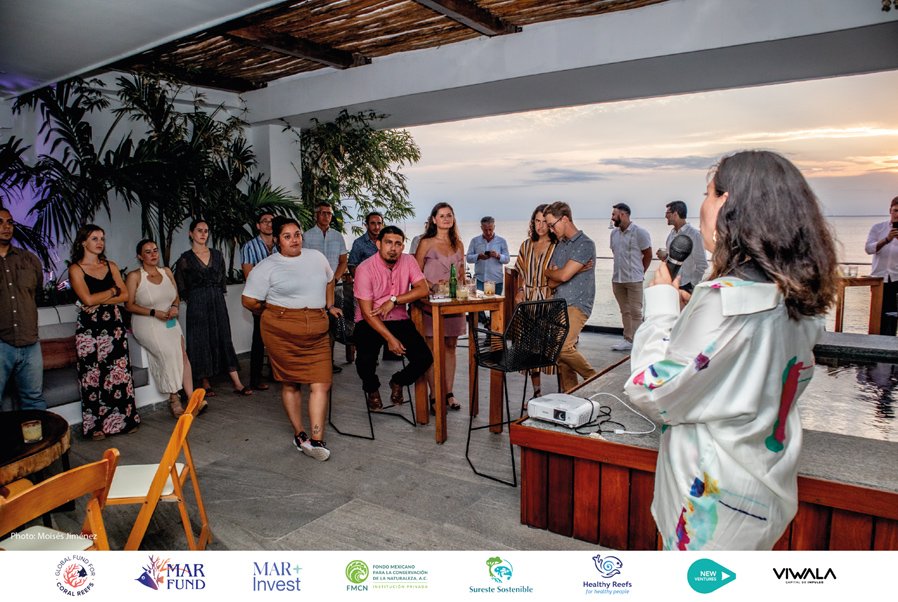
Photo: Moisés Jiménez.
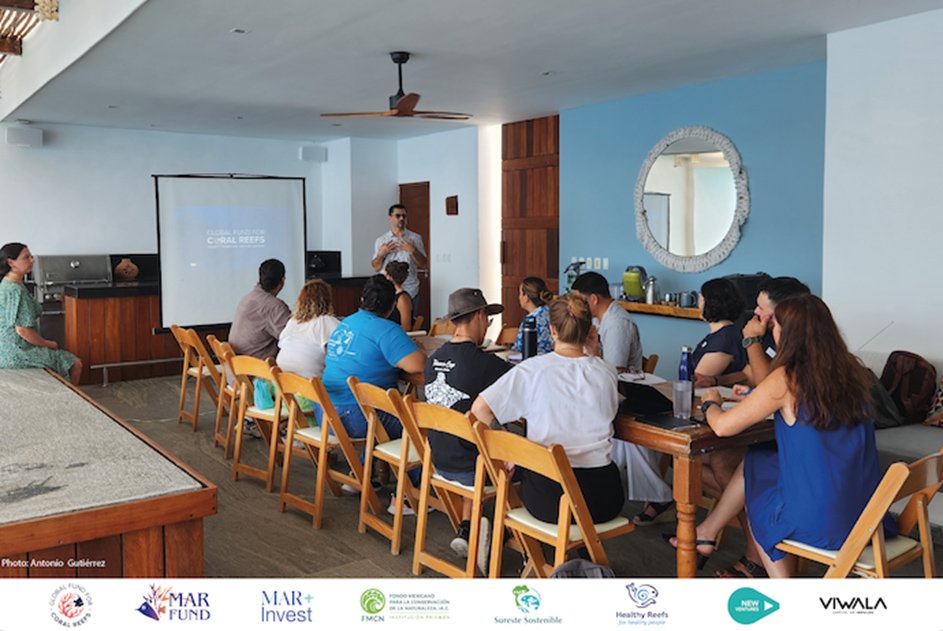
Photo: Antonio Gutiérrez/New Ventures.
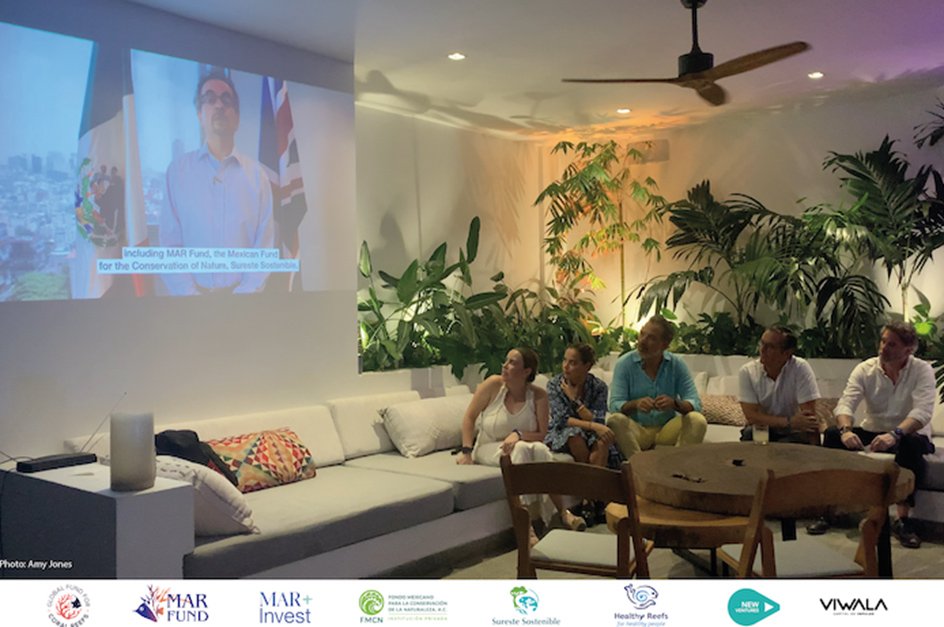
Photo: Amy Jones/MAR Fund.
- GOAL has signed MoUs with 16 fishing cooperatives and five tourism cooperatives in Honduras, to participate in the project’s capacity building activities to adopt sustainable practices.
- As part of a feasibility study on the economical, legal, and environmental analysis of the potential for blue carbon and biodiversity credits in the MAR, Resiliencia Azul (RA) visited the pilot sites identified in Belize, Guatemala and Honduras to assess the status of the key ecosystems and assess market opportunities in each one, and mapped the important stakeholders for the 18 priority CMPAs of the MAR+Invest initiative.
Photo: Fundación Albatros
The work carried out in 2023 has been made possible by the support of donors and partners.
We are grateful for their trust and continued generosity.
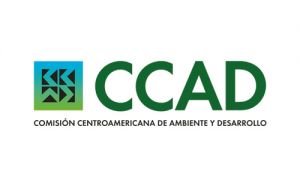
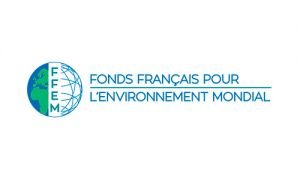
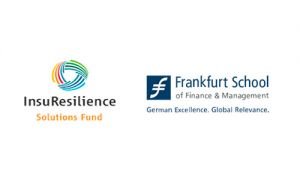
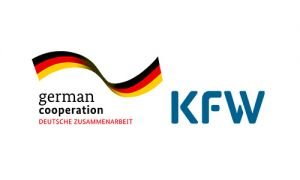
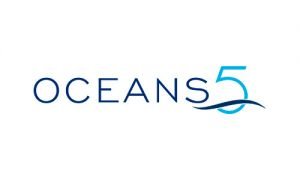
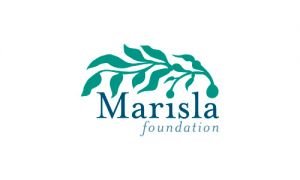
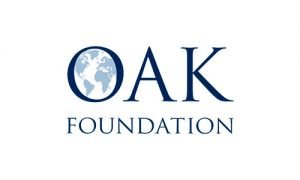

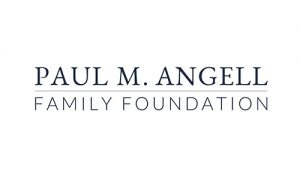



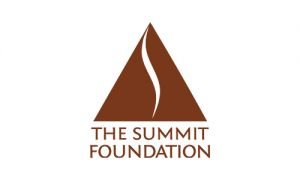
Photo: Fundación Albatros
Followers on Facebook
Followers on Instagram
Followers on Twitter
Views on YouTube
Followers on LinkedIn
June 2023
- La Iniciativa Mesoamericana de Rescate de Arrecifes presenta avances de su trabajo
- Addressing Stony Coral Tissue Loss Disease in Lighthouse Reef Atoll
- Capacitación de brigadas post tormenta para la atención a arrecifes en el Caribe de Honduras
- Primera cohorte del Programa de Aceleración de MAR+Invest
- WTW announces third renewal and expansion of coral reef insurance programme
Webinars 2023
- TASA – Advancing Marine Surveillance with M2 Radar and Turneffe Atoll Marine Reserve – Caye Bokel, May 24
- Discussion panel on Oceans Day, June 8
- Mar+Invest : MAR Investment in the MAR, July 12
- CINVESTAV – Ecological restoration of mangroves in El Playón, Sian Ka’an Marine Biosphere Reserve, August 7

Address:
22 avenida 0-59, Zona 15 Vista Hermosa II
Guatemala, C.A. 01015
Phone: +(502) 2369-3188
Phone: +(502) 2369-1978
Email: info@marfund.org
Website: https://marfund.org/

